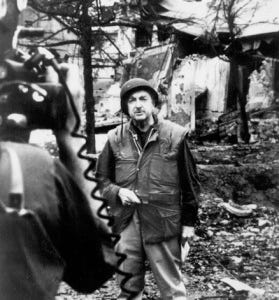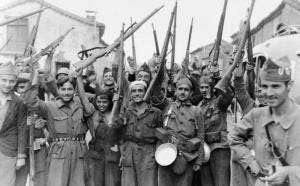Is History always the narrative written by the victor?
Propagation of information-this is how human historiographies have survived; varying from diction to being inked onto our books and literature. However, there are always two sides of a coin; the bipolarity of interpretations of any event that can be seen throughout history. Although with greater research, historical analysis and sifting to exclude fiction and include new facts, this bipolarity disappears. This leaves behind one version which could be either the actual truth-as close as it can get to it- or a blatant lie, created by skewed historiographical formation. In the twentieth century, a need to document more information arose, which allows us to view this bipolarity with more clarity. Yet still from time to time, either sides of the coin could have a chance to become hazy.

The documentation of the Vietnam War shows just that. Between the span of eighteen years, the United States fought battles against the rise of a communist regime in North Vietnam with the support of the South. America emerged battered and bruised from the war, yet still, they controversially refused to admit defeat, although they definitely were not the victors. It was the first televised war and by 1966, ninety-three percent of American households had television, broadcasting the war. Thus, it comes as no surprise that the majority of documentation about the war originates from the U.S.A.; biased with American opinions. The Vietnamese were the victors; where is their side of the story? Swamped on the internet by the more ‘popular’ sites and articles, their views on the war are suppressed unless one asks the right questions; something not everyone has the historical acumen to do.

Seen by many as a forerunner to the Second World War, the Spanish Civil War attracted the attention of European supporters belonging to both extremities of the political spectrum, Nazi Germany and the Soviet Union. A plethora of famous writers and artists surged to the Iberian Peninsula, despite the danger, to produce eclectic representations of the war through a multitude of art forms. Of the British writers who arrived, 106 of a known 127 supported the Republicans; a shocking discrepancy, yet justified by the gathering of anti-fascist sentiments during this time. As Laurie Lee, an English poet present during the war said, “We had found a new freedom, almost a new morality…. a new Satan- fascism.” Anti-Fascism, and consequently, Anti-Nationalism in Spain, was preached to the masses around the globe. In 1939 however, the Nationalists and General Franco won, establishing a thirty-six-year long dictatorship. Of all the wars in the 20th century, this one could not be more clearly written by the losers.
Victory does not ensure one’s deification in history; those who have the means to do so-the writers, the artists, the superpowers- weave their own narratives. The Spanish Civil War and the Vietnam War were no meager wars; understanding their history has helped us understand how victory is not always written by the victors and how in defeat, there may be victory in terms of narrative.


Leave a Reply
Authentication required
You must log in to post a comment.
Log in